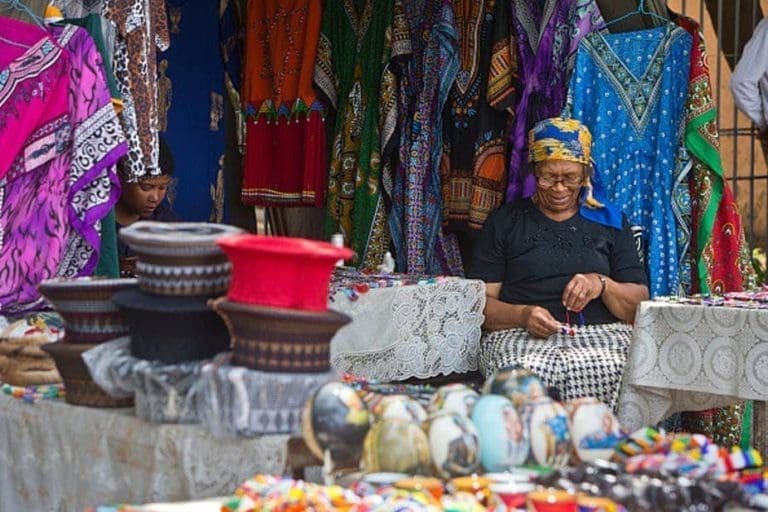The financial gap between men and women is a global problem. It’s a problem because excluding women financially prevents them from participating and contributing to society’s social and economic activities. This is bad for women, and for society.
In South Africa, the government has put in place different measures to address gender equality. But policies on financial inclusion have always been generalised and not gender specific. Financial exclusion is when people don’t have access to – or can’t afford – financial services. Financial inclusion means being able to access credit and manage or mitigate risks with products that satisfy an individual’s basic needs.
In the case of women entrepreneurs, financial inclusion involves being able to save and invest, and having products that help them manage their businesses sustainably.
The focus of my doctoral research was to analyse conditions that explain financial inclusion among women-owned businesses.
My findings show that South African women are financially included in terms of bank account ownership. But they are not financially included in, and don’t make use of a range of, other financial products or services.
I also found that there’s a huge gender gap in terms of policies and interventions that would help women entrepreneurs. Government policies haven’t been designed to address the particular situations faced by women running a business.
Financial inclusion and women
My study involved 30 women entrepreneurs in South Africa’s economic hub Gauteng, as well as five policy makers.
My findings align with earlier research that shows that South African women are more financially included than those in other countries in the Southern African Development Community.
This has been attributed to the fact that South Africa has an extensive programme of distributing grants. Over 18 million are paid out every month by the South African grant agency SASSA. Most are paid into bank accounts and recipients use a Mastercard to cash out money at ATMs and to swipe at shops.
But having a bank account doesn’t equate to using it. Research has shown that 28% have active bank accounts – defined as those with a monthly deposit and where transactions occur monthly. A higher proportion transacted on their accounts only twice a month or had dormant accounts.
Most of the female entrepreneurs in my research said they struggled to access financial services and had to partner with a man before being heard by financial stakeholders. Most of the women also attested to the fact that they remained restricted to the household’s financial responsibilities. They also said they had limited exposure to the benefits of financial institutions and the products they had to offer.
Other constraints that surfaced in my study were:
- Lack of information
- Issues such as race, class and family values that prevented women from taking responsibility for finances
- Related themes such as discrimination, insufficient networks and lack of collaboration, a lack of skills and illiteracy.
Participants also pointed to the fact that they tended to be declared insolvent by financial institutions as they have a higher tendency to be in debt and their businesses going into liquidation than their male counterparts.
What’s in place
Different institutions are working on financial inclusion in South Africa.
The first is National Treasury. The Financial Sector Conduct Authority also has a mandate for financial inclusion.
The Financial Sector Charter was another initiative implemented by the government and financial service providers to transform the sector by increasing the use – and access to – financial services. Part of this has been an ongoing commitment to financial literacy efforts.
But none of the interventions pursued so far have decisively dealt with the issue of financial inclusion for women.
What needs to be done
The critical answer that stood out from the study is that the government should facilitate and have straightforward programmes aimed at women. This initiative would enable the government to add policies that empower women financially and motivate equal access to financial services for women.
Women should also be helped to become economically empowered and self-sustainable through financial literacy on opportunities accessible for them.
Secondly, there should be sufficient financial aids available for female entrepreneurs. The list includes credit systems, access to loans, financial grants and other financial products.
There should also be equal access to financial services, mentoring and support systems.
Lastly, the government should provide more programmes for monitoring and facilitating women entrepreneurs to help them sustain their businesses. This could be achieved by government departments collaborating with the different networks to ensure constant monitoring and evaluation on the gender mainstreaming programs.
A number of developing countries, particularly India, Brazil, Philippines and Malaysia, have signed gender budgeting programs that track how budgets respond to gender equality and women’s rights requirements. The results have been higher rates of financial inclusion and women becoming active participants in the economic sector.
Gender budgeting leads to financial inclusion because it promotes gender equality in fiscal policy making and administration .
This should be replicated in South Africa.
India has also adopted a range of financial inclusion initiatives. The Indian government has initiated schemes such as “No-frills Account”. It also created a system to help people access loans and credits. This was implemented to ensure credit applications comply with basic requirements before credit is issued to people.
It has also been pro-active in terms of technology, encouraging mobile banking and branch-less banking. In addition, financial education is a big part of what’s being done. This is designed to help people understand financial services products.
The success of these strategies has led to greater inclusive development for the women entrepreneurs. As a result, accessibility to finance has boosted the long-term macroeconomic performance for Indian women. Particularly, in low-income areas the initiative brought benefits associated with greater gender equality and social cohesion in communities.
Similar initiatives could ensure better financial inclusion opportunities for South African women entrepreneurs.![]()
![]()
Tinuade Adekunbi Ojo, Post-Doctoral Research Fellow, University of Johannesburg
This article is republished from The Conversation under a Creative Commons license. Read the original article.
